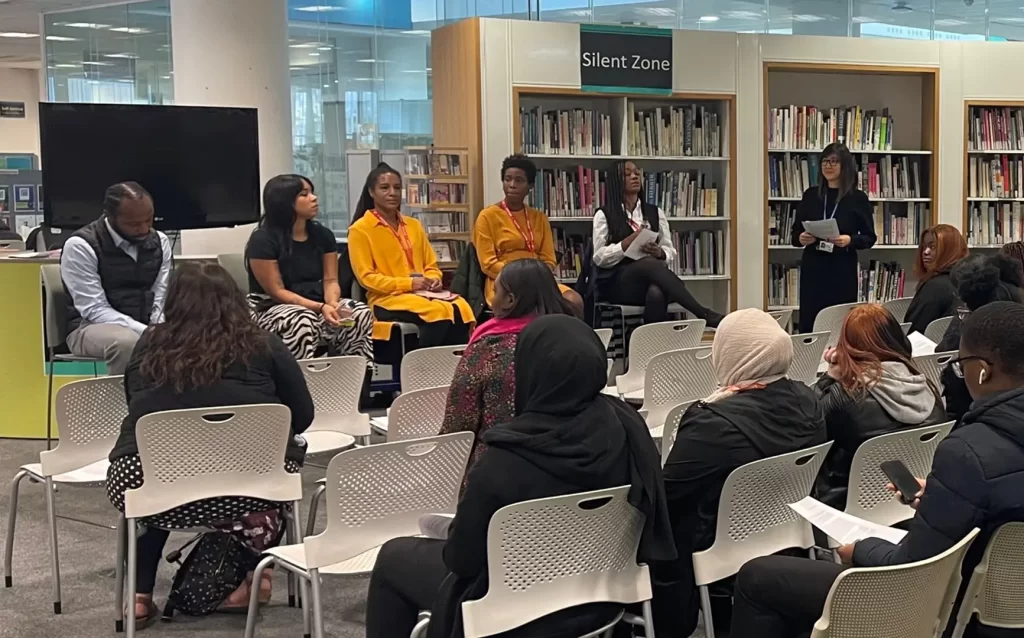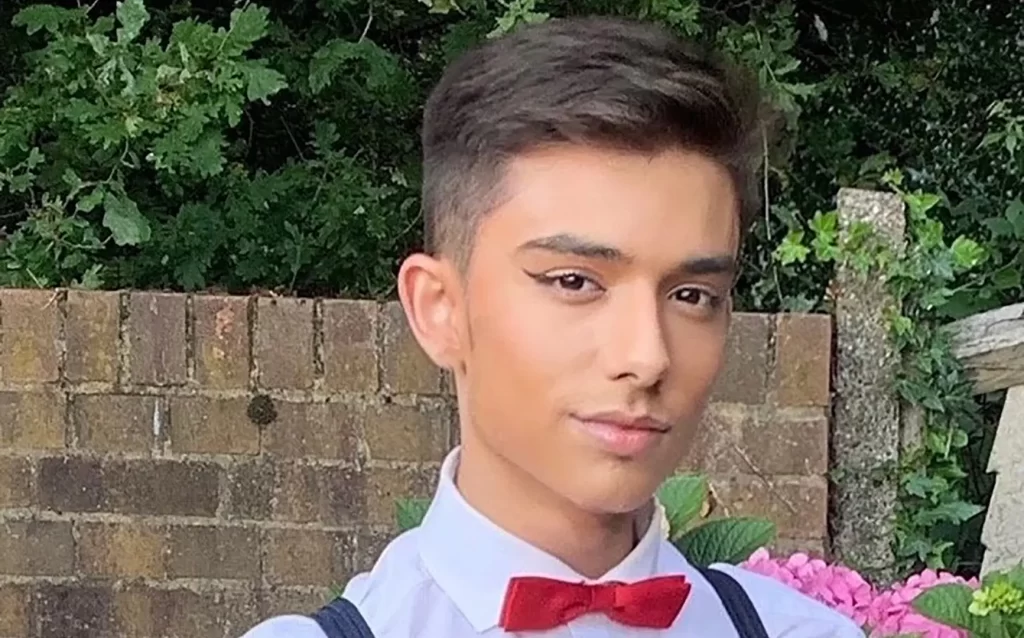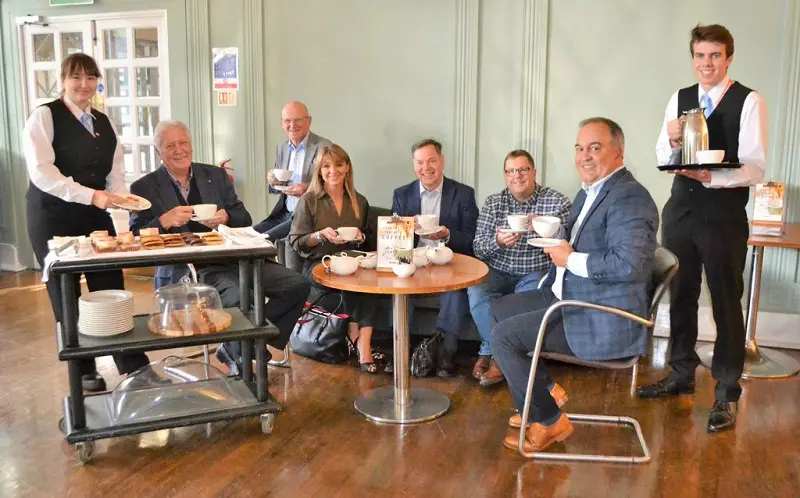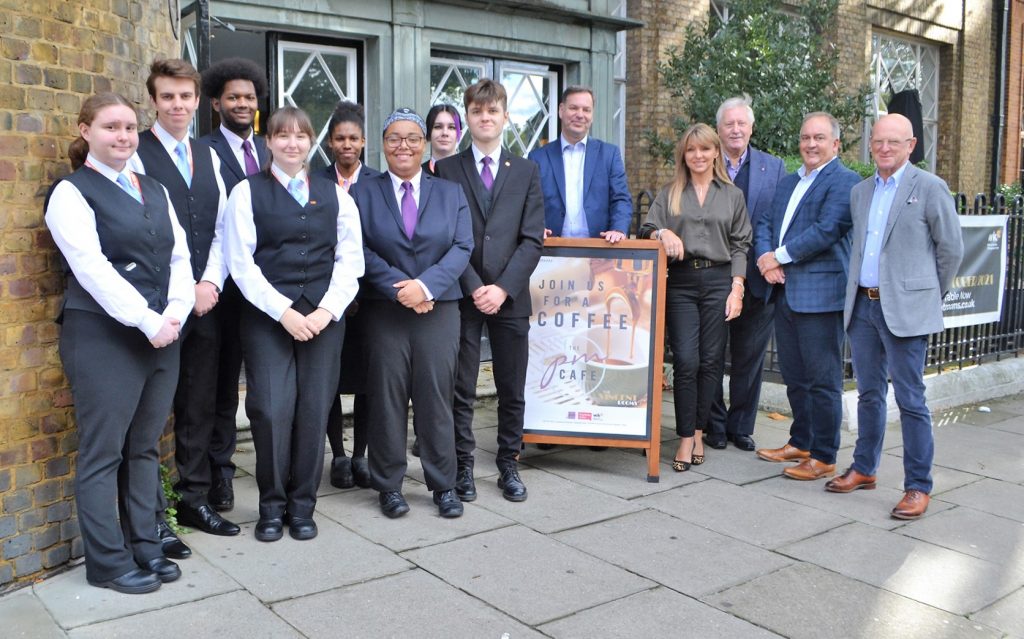Students from Westminster Kingsway College praised their lecturers’ support during the pandemic as they were awarded their degrees at this year’s graduation ceremony.
Assistant Principal Keith Turner presented the new graduates with their scrolls as they were announced by Maliheh Hamdollah, Programme Area Leader for Business, at St Stephen’s Church near the college’s Victoria Centre.
Both the classes of 2021 and 2020 were honoured at a joint ceremony after last year’s graduation was cancelled due to the COVID-19 pandemic.
Deputy Executive Principal Gary Hunter announced this year’s student awards at the ceremony, which were presented by Culinary Arts lecturer Vince Kelly.
Valedictorian awards, for the graduates attaining the highest achievement in their year, were presented to Hospitality and Tourism Management student Heather Braveboy and Business Strategy and Enterprise Management student Kathleen Dean, who both gave speeches.
Awards were also presented to outstanding students in Business Strategy and Enterprise Management, Culinary Arts and Business Management, and Hospitality and Tourism Management.
Further awards were given to students who excelled in research, analytics, innovation, entrepreneurship, enterprise, teamwork, peer support and for best dissertation.
Katarzyna Uddin, 33, who graduated with a BA (Hons) in Business Strategy and Enterprise Management and received the Outstanding Student award on her course, hopes to set up an organic café in the next two years.
She said: “I feel very happy that my hard work has been recognised. Getting the award has given me the confidence to know if I work hard and I’m determined I will be able to achieve my dreams.
“We’ve not been able to celebrate for a year, so it’s been nice to finally be able to get together. Most of us felt quite isolated from other students during COVID and it was difficult to finish our degrees at home, but the teaching was amazing. All the lecturers were very encouraging and supportive and believed in us.
“I want to start my own business and feel I’ve now got the skills and knowledge to run it when it opens. My degree has taught me how to do a proper business plan, marketing and how to understand finances. I enjoyed working and learning from other people, hearing different people’s views and realising the importance of working as a team if you want to be successful.”
Elizabeth McBride, 23, graduated with a BA (Hons) in Hospitality and Tourism Management and won the student award for culinary entrepreneurship.
She said: “It feels too good to be true. I’m so happy to have finally completed my degree because there were so many points during COVID when I wasn’t sure if I was going to be able to do it. It was more difficult and challenging with everything online, but we had one-to-ones with our lecturers if we needed help. You’d send them an email and they’d be there straight away. It was never a problem, there was a lot of support. It went a lot smoother than most of us thought it would.”
Elizabeth previously completed a Patisserie and Confectionary Level 2 Certificate at WestKing and has been working as a pastry chef in restaurants in London for five years.
She added: “I realised I wanted to make my own cakes, but I just needed to know everything that needed to go into it. The course covered business management, law, finance and marketing – all the topics I needed to know, so it was the perfect course for me. It’s opened my eyes and given me a lot more confidence because now I know more about what goes into running a business.”
Petrena O’Halloran, Head of School for Higher Education and Professional Programmes, welcomed students, staff, parents and guests to the ceremony, which also included speeches by Executive Principal Kurt Hintz, Chair of Governors Alastair Da Costa and Vice Principal Jasbir Sondhi.
Special guests Deborah Homshaw, Managing Director for CH&CO, and Ralph Coulson, People Operations Business Partner at Food+ by Compass, also addressed the students.
Congratulating the students at the ceremony, Petrena said: “We have had an exciting yet challenging year of transition, and you have all demonstrated the amazing ability to overcome challenges and weather the storm while learning creatively.
“All your hard work, your educational journey, your incredibly strong pursuit in the quest for academic excellence, and your unquestionable commitment towards your goals have culminated in this moment. This is a big achievement for you, a first step on the road to success, and you will go on to achieve great triumphs and other prosperous accomplishments.
“Well done to all of you for putting in the necessary hard work to be included in the graduating classes this year.”
Find out more about our Higher Education courses and apply now.




















